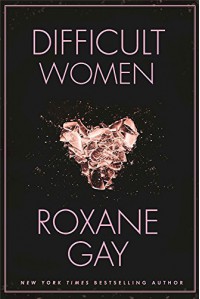Out in January

Disclaimer: ARC via Netgalley.
To describe the central women in Gay’s new collection as difficult is incorrect. Human would perhaps be the better term. The stories in this collection have appeared in some form elsewhere, and range across genres, though many of them have a touch of fantasy about them. One wonders too, especially one who has read Gay’s non-fiction work and seen her speak, whether more than a few of them contain some autobiographical detail. Gay herself recently commented on writing memoir as well as the selling of it, noting that white men get some weird type of memoir is great pass (I’m paraphrasing).
Story and memoir, it seems, to some critics is the dominion the male.
Gay, it seems, is pushing back at that.
The collection starts off strong with a short story about two sisters, “I Will Follow You”. The winning point of the story is not just the sister’s relationship but also the comments on the sisters’ relationship with men, how a good man comes in unexpected packages at time. But the overall them of the story seems to be one of mutual survival and need.
The theme of relationships run though many of the stories. While some of the relationships described as those with men, many have to do with relationships between women, in particular sisters. It is these relationships that are more shaded in the stories. The relationships between men while somewhat varied seemed to be described in similar terms – kissing a shoulder, a heavy arm across a sleeping women. Many of the men, too, seem interchangeable. One of the few that stands out is Alvarez from the story “La Negra Blanca” and Darryl from “I Will Follow You”.
The relationship between women is in many ways the heart of most of the stories. There are stories about sisters, not just “I Will Follow You” but also “I am a Knife”, “Baby Arm”, and “How”. Even when sisters are not present in a biological sense, there are descriptions of how to find them like in the collection of views that makes up the story “Florida”.
In many ways, the book also deals with the struggle to come to terms not only with self but also where one finds oneself. There is the movement to the “North Country” in the story of the same name, of moving beyond what is safe to something more, whether or not that is worthwhile is a different question.
The women in the book are not the standard heroines of many of the television or movies or even romance novels that one sees. If you are looking for Hallmark Channel or Lifetime women, this is not the book for you, but it is a book that you should read. “In Event of My Father’s Death” takes a plot that would have appeared on Lifetime and ups it in a way that the network would not be able to.
The collection does end on a strong note, “Strange Gods”, a story that seems to tie everything together. There is much to unpack from “Strange Gods” not only seeing the other stories in a different light, but also seeing Gay herself, though aspects of her seem to appear in all the stories, even “Bad Priest” and even in the body of the women made of glass. In many ways, this is what we all are – facets, brilliant and dull shards, Zora Neale Hurston’s bag of miscellany.








